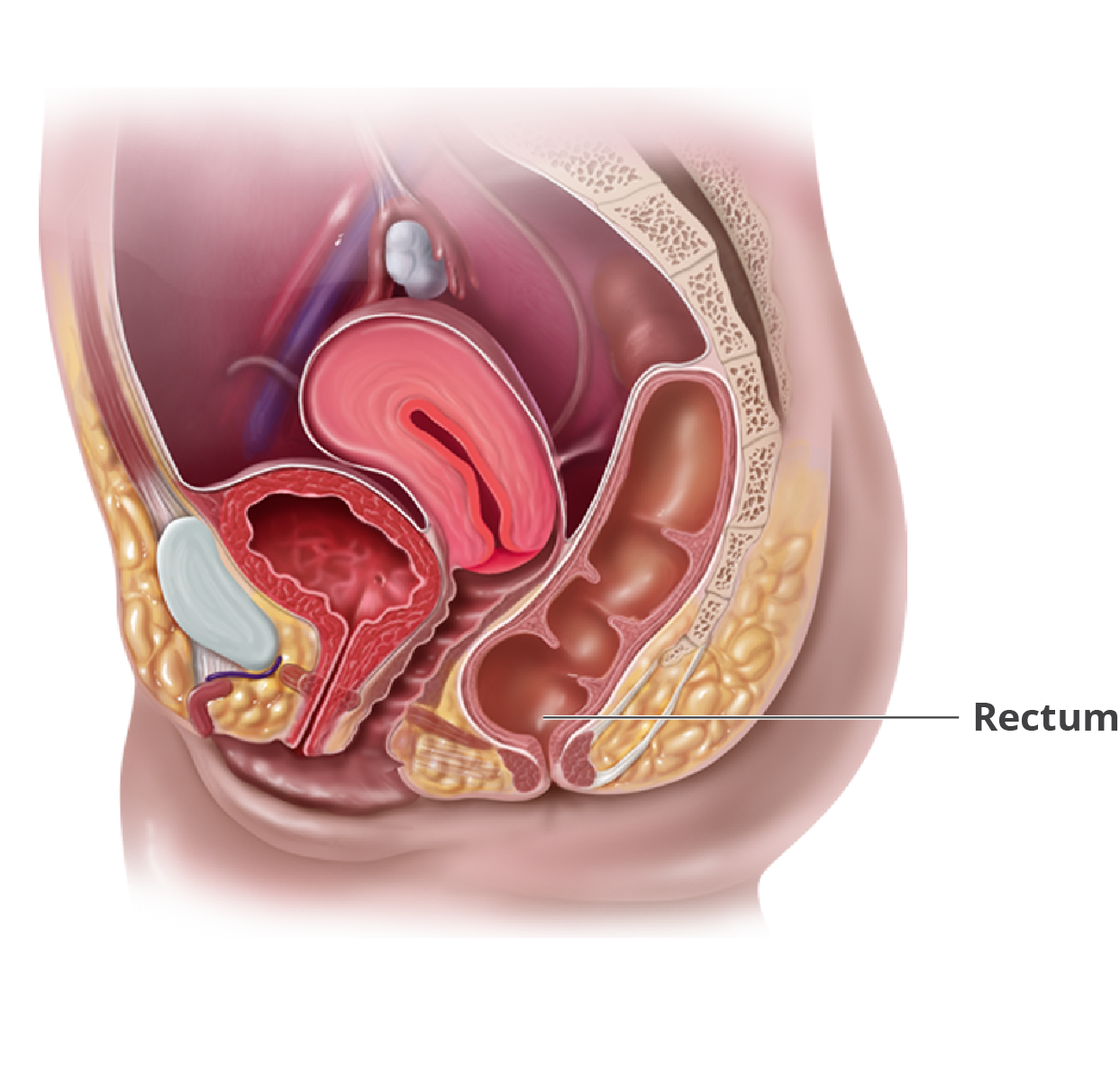
Determining an optimal treatment plan for a patient with rectal cancer is a complex process. Physicians must decide if planned surgery is curative or palliative, and must also consider the likely functional results of treatment, including the probability of maintaining or restoring normal bowel function and anal continence, and maintaining normal genitourinary function. In patients that have cancer close to the anal canal, achieving these goals may be challenging.
The risk of pelvic recurrences is higher with rectal cancer than with colon cancer, and locally recurrent rectal cancer is associated with a poor prognosis. Physicians must carefully individualize treatment and consider the use of sequenced multimodality therapies, including chemoradiation therapy, chemotherapy, and surgery. Patients with high-risk low-volume tumors and higher-volume tumors are generally treated with the same chemotherapeutic agents used to treat colon cancer, including infusional 5-FU or capecitabine with radiation therapy, or FOLFOX or CAPEOX regimens.
